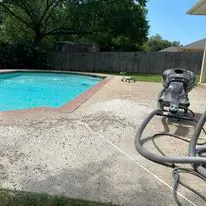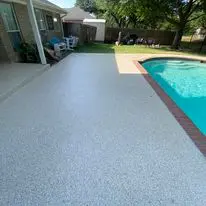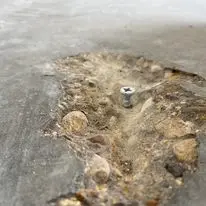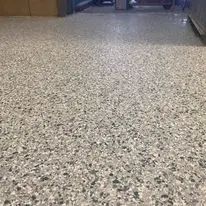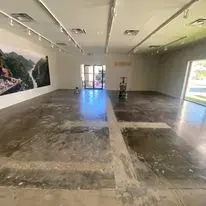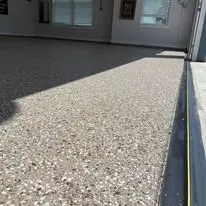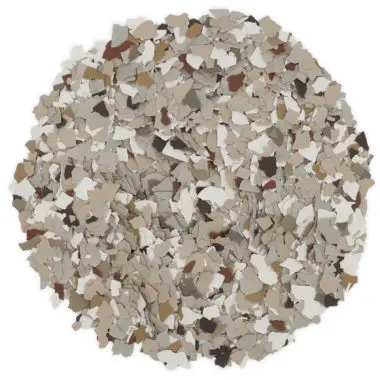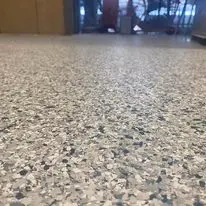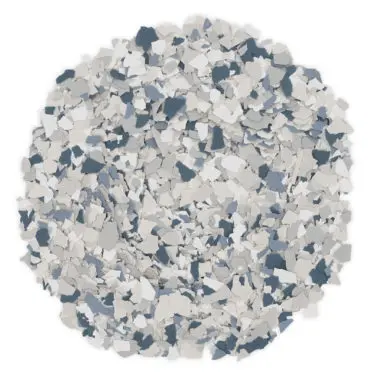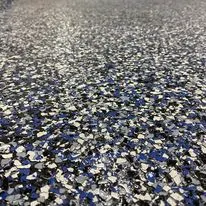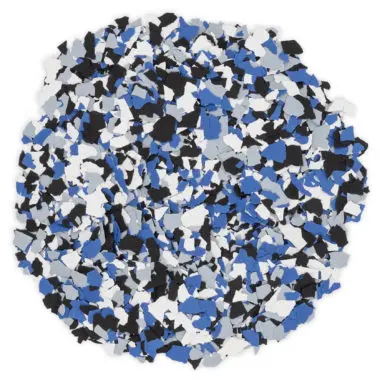At Custom Epoxy Surfacing, we know that no two projects are the same. Every epoxy garage floor requires careful evaluation to ensure the best results. Our garage floor epoxy installation process begins with a detailed on-site assessment to identify any potential challenges and determine the best approach for a durable and long-lasting epoxy floor.
If you're looking for epoxy flooring in Arlington TX, our expert team is here to provide a comprehensive concrete evaluation and deliver custom epoxy floors that enhance the durability, appearance, and functionality of your space.
On-Site Substrate Assessment
Why an On-Site Concrete Assessment is Essential
Before providing an estimate, we conduct a thorough concrete evaluation to determine the right garage floor epoxy system for your space. This step ensures that your new epoxy flooring in Arlington TX will bond properly, remain resistant to damage, and stand the test of time.
Key Factors We Assess:
✔ Damage Inspection – We check for cracks, spalling, chipping, and other structural issues that may affect the adhesion of epoxy. If needed, we perform concrete resurfacing in Arlington to restore the surface before applying epoxy.
✔ Moisture Testing – Concrete naturally releases moisture, and excess moisture can cause epoxy coatings to delaminate or crack. We ensure that moisture levels are within the safe range for a seamless epoxy garage floor.
✔ Drainage Evaluation – Proper drainage prevents water accumulation and long-term damage, especially in garages exposed to humidity or outdoor elements.
✔ Hardness Testing – The density and hardness of your concrete surface determine the level of grinding and surface preparation needed to create the best bonding conditions for garage floor epoxy.
Essential Features for a Long-Lasting Epoxy Garage Floor
Threshold Seal for Added Protection
A threshold seal is a rubber strip installed where the garage door meets the floor. This seal blocks dust, dirt, leaves, and water from entering the garage, helping to maintain a cleaner space while extending the life of your garage floor epoxy coating.
Stem Wall Coating for a Seamless Finish
The stem wall is the vertical section of concrete between the garage floor and drywall. If your stem wall is exposed, we recommend applying custom epoxy floors to protect it from moisture, oil stains, and daily wear. We measure the linear feet of exposed stem wall and include this in our estimate as a separate item.
Custom Epoxy Floors Designed for Your Needs
At Custom Epoxy Surfacing, we understand that every customer has a unique vision. That’s why we offer a variety of color options, textures, and finishes to match your style. Whether you're looking for a sleek, modern garage floor epoxy finish or a custom industrial flooring solution, we provide tailored recommendations based on your space and needs.
If you have questions, check out the Frequently Asked Questions section on our website, or reach out to our team for expert guidance.
Color Options & FAQ
We discuss color options and address any questions you might have. For additional information, check out the frequently asked questions tab on our website. At Custom Epoxy Surfacing, we pride ourselves on providing personalized, high-quality flooring solutions tailored to your specific needs. By thoroughly assessing your project, we ensure that you receive the best possible results.
Get a Professional Concrete Assessment Today
Considering an epoxy garage floor? A concrete evaluation is the first step! Let us help you transform your space with custom garage floor coatings.
